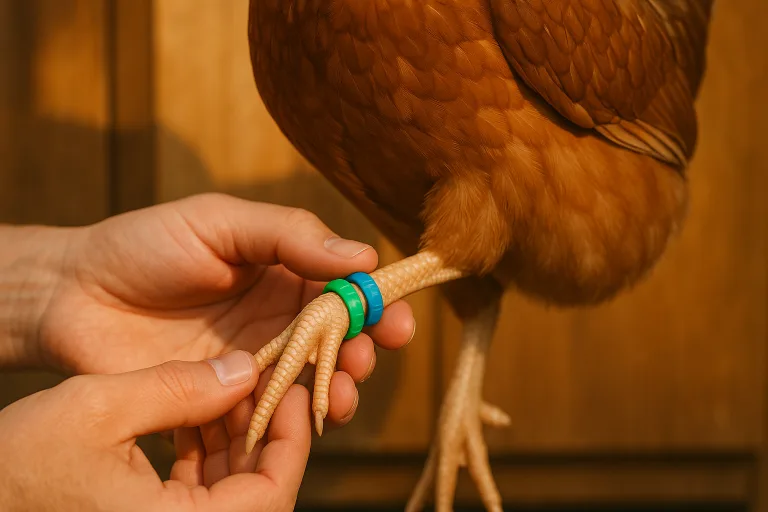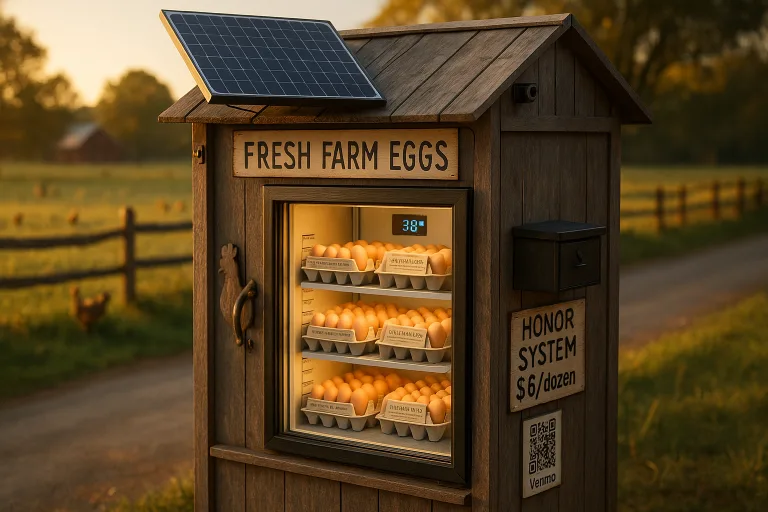Backyard Egg Selling Laws In Washington
So, you’ve decided to embark on the exciting journey of backyard egg selling in Washington. But before you crack open that carton of eggs, it’s essential to familiarize yourself with the laws and regulations surrounding this endeavor.
From permits and licensing requirements to health and safety regulations, there are plenty of factors to consider. And trust us, you don’t want to scramble things up by unknowingly breaking the law.
So, let’s dive into the world of backyard egg selling in Washington and uncover the information you need to ensure a smooth, yolky operation.
Importance of Knowing the Laws
Knowing the laws regarding backyard egg selling in Washington is crucial for anyone interested in engaging in this activity. It’s important to have a thorough understanding of these laws to ensure compliance and avoid any legal issues that may arise.
One key aspect to consider is consumer awareness. By knowing the laws, you can provide your customers with accurate information about the eggs you sell. This includes details about the conditions in which the eggs were produced, potential risks, and any labeling requirements. By being transparent and knowledgeable, you can build trust with your customers and ensure their safety and satisfaction.
Additionally, understanding the laws surrounding backyard egg selling can help you assess the economic impact of this venture. You’ll be able to determine the costs associated with compliance, such as obtaining necessary permits or licenses, and ensuring proper sanitation and safety measures. Understanding these regulations can also help you anticipate any potential restrictions or limitations that may affect your ability to sell eggs and make informed decisions about pricing and marketing strategies.
Permits and Licensing Requirements
To comply with the laws regarding backyard egg selling in Washington, you must obtain the necessary permits and licenses. Before you can start selling eggs from your backyard, you need to submit a permits application to the appropriate authorities.
The permits application will require you to provide detailed information about your backyard operation, including the number of hens you have, the facilities you have in place for egg production, and the methods you use for cleaning and sanitizing your eggs.
Once you have submitted your permits application, you should expect to undergo food safety inspections. These inspections are carried out to ensure that your backyard egg operation meets the necessary health and safety standards.
During the inspection, a food safety inspector will assess your facilities, equipment, and procedures to ensure that you’re following proper protocols for egg production, storage, and handling.
It is important to note that obtaining the necessary permits and licenses isn’t just a legal requirement, but it also helps to protect the health and safety of consumers. By going through the process of permits application and food safety inspections, you demonstrate your commitment to providing safe and quality eggs to your customers.
Health and Safety Regulations
Health and safety regulations play a crucial role in ensuring the well-being of both backyard egg producers and consumers. When it comes to selling backyard eggs, it’s important to be aware of the potential health risks and take necessary precautions.
Here are three key points to consider:
- Importance of training: As a backyard egg producer, it’s essential to have proper training on food safety practices. This includes understanding how to handle and store eggs correctly, maintaining clean and sanitary conditions in your backyard operation, and knowing how to prevent contamination and the spread of diseases. By receiving proper training, you can ensure that you’re producing safe and high-quality eggs for consumers.
- Consumer awareness: It’s equally important to educate your consumers about the potential risks associated with consuming backyard eggs. While these eggs can be a great source of fresh and organic produce, consumers need to understand the importance of proper cooking and handling techniques to minimize the risk of foodborne illnesses. By promoting consumer awareness, you can help ensure that your customers are making informed decisions and taking necessary precautions when consuming your eggs.
- Regular inspections: Health and safety regulations often require periodic inspections of backyard egg operations. These inspections help identify any potential health hazards and ensure that proper protocols are being followed. By complying with these inspections, you demonstrate your commitment to maintaining a safe and healthy environment for both yourself and your customers.
Packaging and Labeling Guidelines
When it comes to packaging and labeling guidelines for backyard egg sellers in Washington, there are a few important points to keep in mind.
First, it’s crucial to include the required information on your labels, such as the date the eggs were laid and any necessary health warnings.
Additionally, be aware of any packaging size restrictions that may apply in your area.
Required Information on Labels
Labels on backyard eggs in Washington must include specific information to comply with packaging and labeling guidelines. Ensuring accuracy in labeling is essential for maintaining consumer trust and confidence. When it comes to purchasing eggs, consumers rely on the information provided on the labels to make informed decisions about the products they buy.
To meet these expectations, the following information should be included on the labels:
- Date of packaging: This indicates when the eggs were packed, allowing consumers to assess their freshness.
- Farm identification: Providing the name or identification number of the farm where the eggs were produced gives consumers the ability to trace the source of their food.
- Handling instructions: Clear instructions on how to handle and store the eggs are important to maintain their quality and safety.
Packaging Size Restrictions
Packaging size restrictions play a crucial role in ensuring compliance with packaging and labeling guidelines for backyard egg sales in Washington. These restrictions are put in place to protect consumers and maintain fairness in the marketplace. They also help address economic impact and consumer preferences.
When it comes to packaging size, Washington state law requires that eggs sold directly from backyard producers must be sold in containers with a capacity of no more than 30 dozen eggs. This restriction ensures that consumers have access to fresh eggs while also preventing backyard producers from dominating the market with large-scale operations. By limiting the packaging size, it allows for a more level playing field, promoting competition and supporting local farmers.
Additionally, these restrictions align with consumer preferences. Many consumers prefer to buy eggs in smaller quantities to ensure freshness and reduce waste. Smaller packaging sizes allow for easier storage and consumption, providing consumers with more options and flexibility. It also encourages backyard producers to focus on quality rather than quantity, meeting the demands of health-conscious and environmentally conscious consumers.
Selling Locations and Restrictions
When it comes to selling backyard eggs in Washington, there are a few important points to keep in mind:
- You’ll need to obtain the necessary permits and licenses to legally sell your eggs.
- It’s crucial to be aware of any local zoning regulations that may dictate where you can sell your eggs. Certain areas may have restrictions on selling goods from residential properties.
Having a clear understanding of these factors will help ensure that you are in compliance with the law and can sell your backyard eggs successfully.
Selling Permits and Licenses
To legally sell eggs from your backyard in Washington, it’s important to obtain the necessary permits and licenses, ensuring compliance with selling locations and restrictions. Here are three key points to keep in mind:
- Selling Fees: When applying for a permit to sell eggs, there may be fees involved. These fees help cover the costs of the inspection process and administration of the permit. The specific amount will vary depending on your location and the type of permit you’re applying for.
- Inspection Process: Before you can obtain a selling permit, your backyard egg operation will need to undergo an inspection. This inspection ensures that your eggs meet the necessary health and safety standards. Inspectors will check for cleanliness, proper labeling, and adequate storage conditions.
- License Renewal: Selling permits and licenses typically need to be renewed annually. This ensures that your operation continues to comply with regulations and maintains the necessary standards of quality and safety.
Local Zoning Regulations
After obtaining the necessary permits and licenses, it’s important to understand the local zoning regulations that dictate where and how you can sell your backyard eggs in Washington.
These zoning restrictions are put in place to ensure that backyard farming activities don’t disrupt the surrounding community.
When it comes to selling locations, you need to comply with the zoning requirements set by your local government. This means that you may be restricted from selling your eggs in certain areas, such as residential neighborhoods or commercial districts.
Additionally, there may be restrictions on the size and appearance of any structures or signage you use for selling your eggs.
It’s crucial to familiarize yourself with these regulations to avoid any potential legal issues and ensure a smooth operation of your backyard egg business.
Penalties for Non-Compliance
Failure to comply with the backyard egg selling laws in Washington can result in substantial penalties. It’s important to understand the consequences and legal ramifications of non-compliance to avoid any unnecessary trouble. Here are some key points to consider:
- Fines: Violating the backyard egg selling laws can lead to hefty fines. The amount of the fine may vary depending on the severity of the violation and the number of offenses committed. It’s essential to ensure that you’re adhering to all the regulations to avoid financial penalties.
- Legal Action: Non-compliance with the laws can also result in legal action being taken against you. This could involve lawsuits and court proceedings, which can be time-consuming, stressful, and expensive. It’s crucial to familiarize yourself with the specific requirements and follow them diligently to avoid any legal troubles.
- Closure of Operations: In extreme cases of non-compliance or repeated offenses, authorities may have the power to shut down your backyard egg selling operation. This can have serious consequences for your business and personal reputation. It’s essential to abide by the laws to ensure the continuity of your operation and maintain a positive standing in the community.
Understanding the penalties for non-compliance is vital for anyone involved in backyard egg selling in Washington. By following the regulations, you can avoid the potential consequences and ensure a smooth and lawful operation.
Conclusion
In conclusion, it’s crucial to be aware of the laws and regulations surrounding backyard egg selling in Washington.
Obtaining the necessary permits and licenses, adhering to health and safety guidelines, and following packaging and labeling requirements are essential to ensure compliance.
Understanding where and how you can sell your eggs, as well as the penalties for non-compliance, is vital for a successful and legal backyard egg selling venture in Washington.


